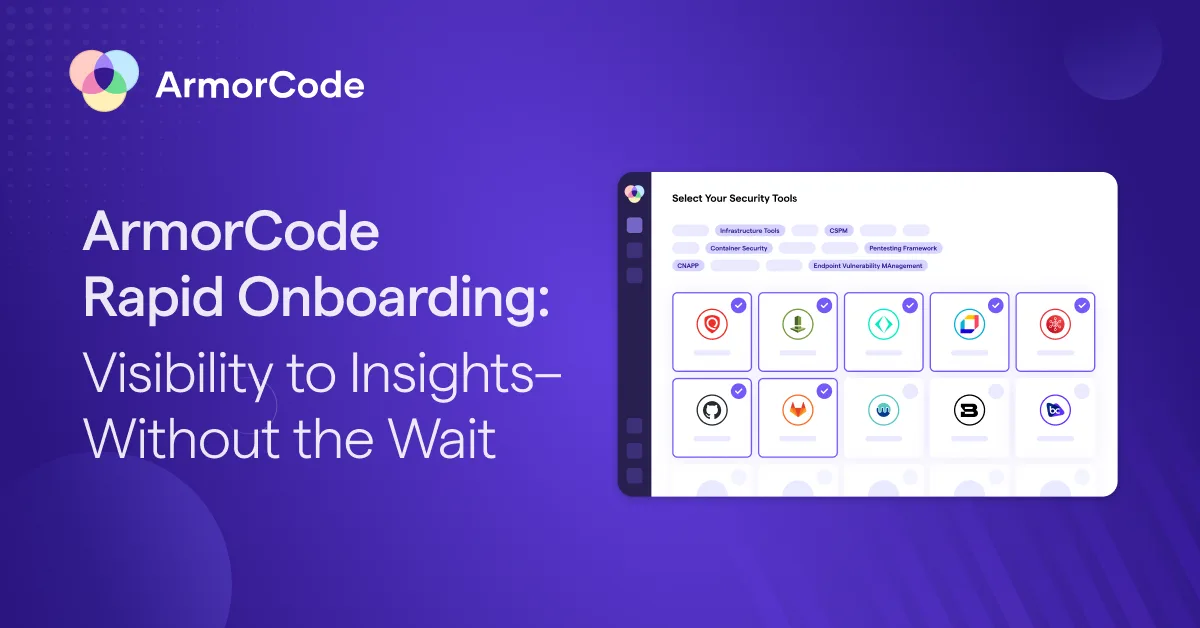Manage the Full Lifecycle of Findings with the ArmorCode Risk Register
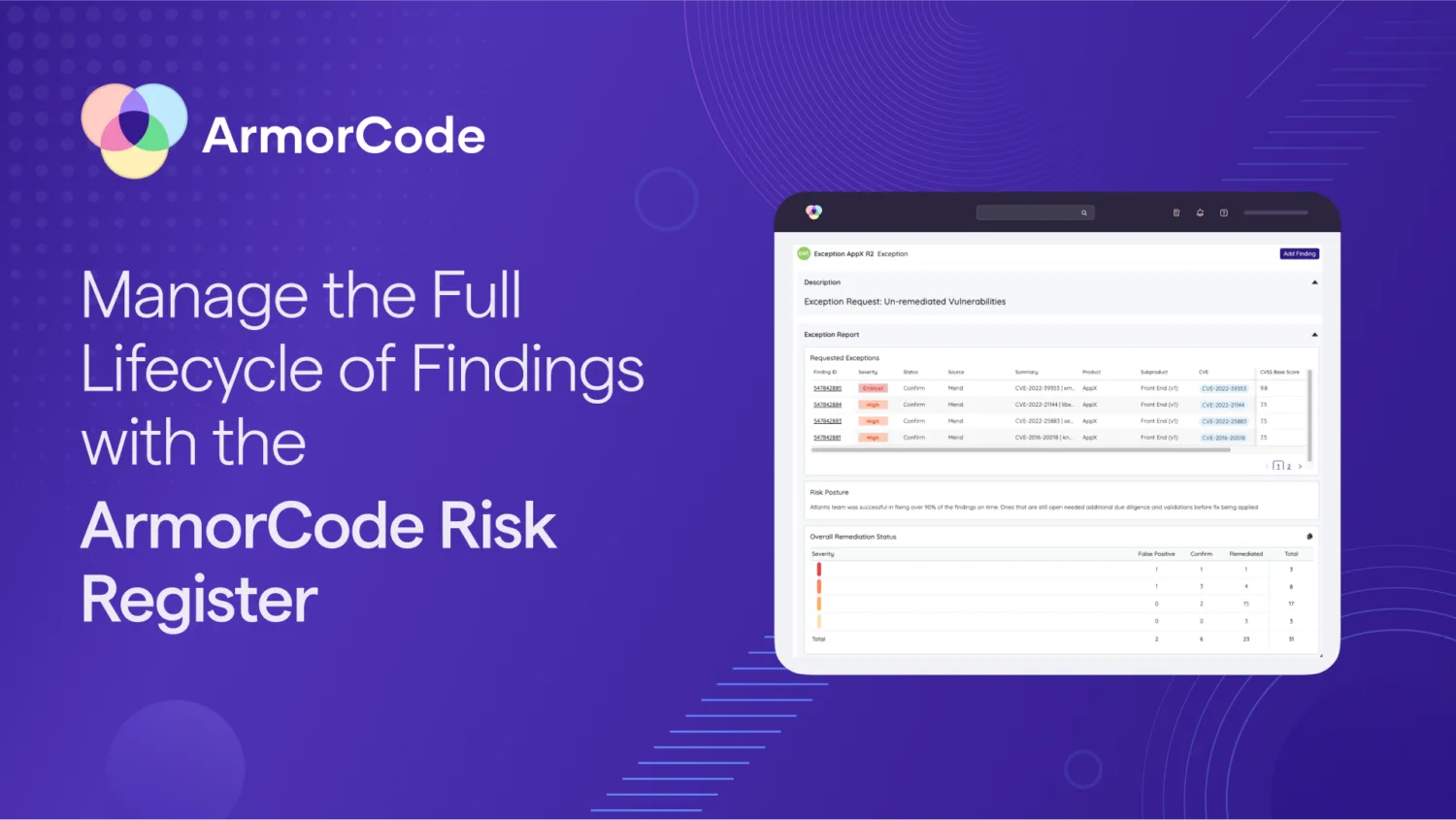
Regulatory and internal compliance processes are a necessary reality for organizations. They ensure that teams are following agreed upon steps for securing and safeguarding data and software development. However, properly following these processes is not always a simple matter. Take the processes for requesting an exception for remediating a Finding, for example.
Not every Finding can be or needs to be patched. Today, when a development team wants to request an exception for remediating a Finding, compliance processes require a series of approvals be granted by key stakeholders to ensure proper auditability and oversight. In practice, this often results in a disjointed, manual series of steps for getting approvals and creating the paper trail. In mature or heavily regulated organizations, upwards of 5-10 people may need to review and approve a request for an exception. This is often handled through email chains, Excel files, Confluence pages, and other tools.
As a result, centralized tracking and reporting for Finding exceptions is difficult to put together and extremely hard to review and track over time. As part of the Findings lifecycle and proper governance and compliance, teams need to report on exception handling over a wide time period. However, the necessary information for governance and auditing is spread across emails and other tools, and needs a lot of manual work to bring together. This slows down teams and can leave gaps in compliance if the data is missing.
Introducing the streamlined Risk Register in ArmorCode
To further help development and security teams centralize and automate security workflows, ArmorCode is introducing the Risk Register. The Risk Register centralizes the exception handling workflow into one ASPM platform for the entire Findings lifecycle. This enables security teams to add more structure and guardrails to granting and reviewing exceptions, rather than each exception being handled as a one-off, or requiring a manual process that spans multiple tools.
Now security teams can prove better governance and compliance in ArmorCode with a clear paper trail for exception handling and a streamlined process for approvals. Let’s take a look at the flexibility of the Risk Register and how it can help you get more out of ArmorCode.
Get centralized governance and guardrails for exception handling
ArmorCode enables teams to unify and normalize their Findings from across all their security scanners. This creates a comprehensive and consistent view of risk for an organization’s application portfolio across code, infrastructure, cloud, and more. With Intelligent Risk Scoring, teams identify their most critical risks and create a single remediation workflow. However, not every Finding is critical, and not every Finding can be closed quickly, or even at all. Across Findings from all scanners, teams can now create an exception for such Findings with justification and explanation, and ensure they go through a proper approval process, all within the ArmorCode ASPM Platform.
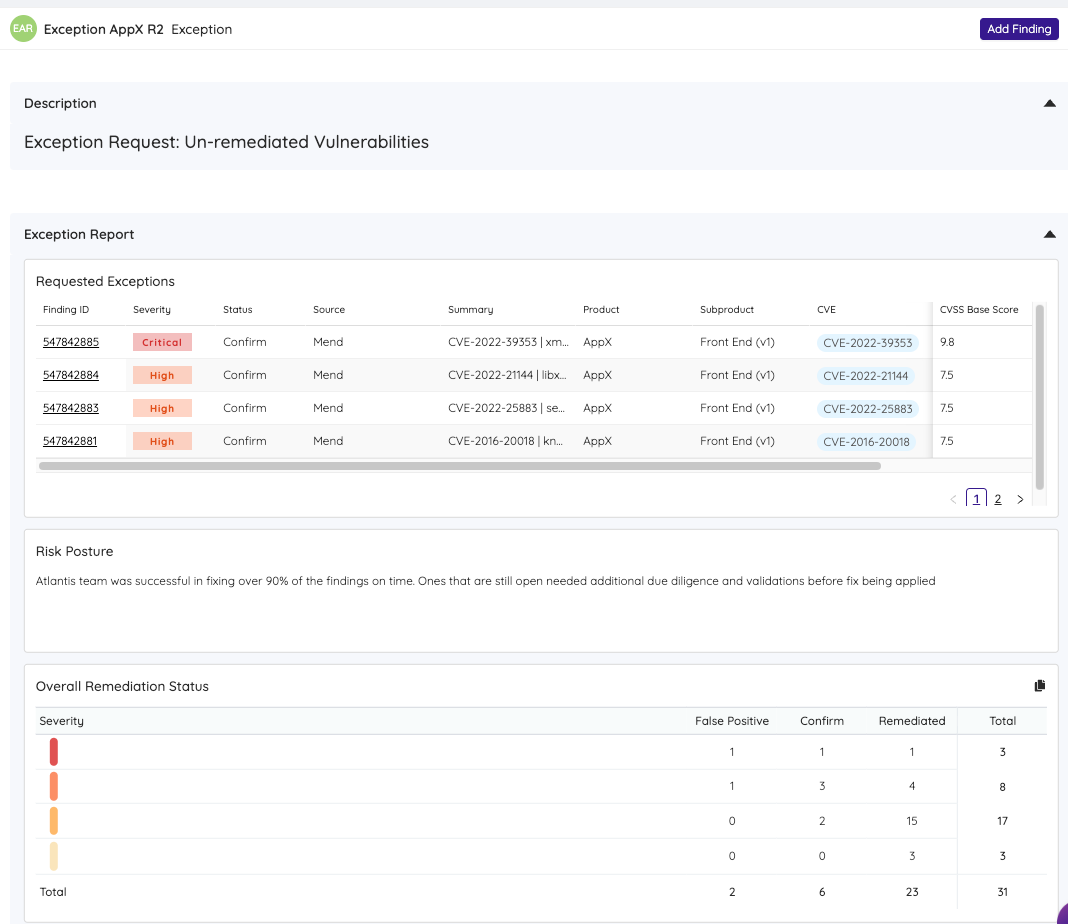
Faster and easier auditability with paper trails
Granting exceptions for certain Findings is part of the remediation process, but for regulatory requirements, these exceptions must be auditable. In the Risk Register, auditors and security teams can view the status, history, and each step of the exception process for all Findings that have gone through the process. No more cobbling together paper trails across emails, Excel files, Confluence, and other systems.
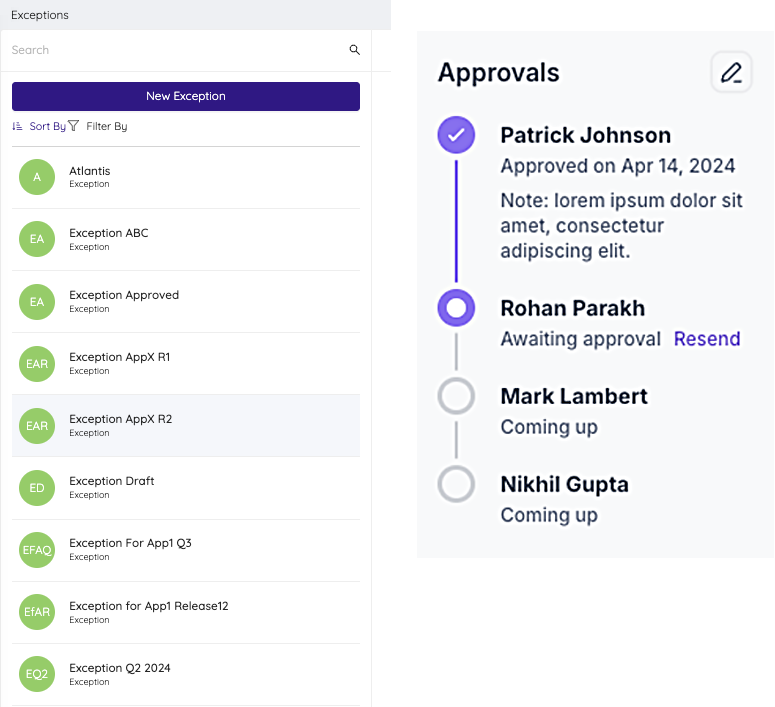
Improved security posture and AppSec Program maturity
When exceptions are granted through a chain of emails, spreadsheets, and systems like Confluence, it’s easy to lose track of what’s been approved, what’s still in the process, and when a granted exception is up again for review. As a result, Findings can slip through the cracks, from both a remediation and a reporting standpoint.
The Risk Register in ArmorCode ensures that teams can implement a mature, standardized process for handling exceptions that is easy to engage with for application owners, key approval stakeholders, security teams, and auditors. This helps teams strengthen their AppSec and vulnerability management programs, and ensure that Findings and their exceptions are properly tracked and managed.
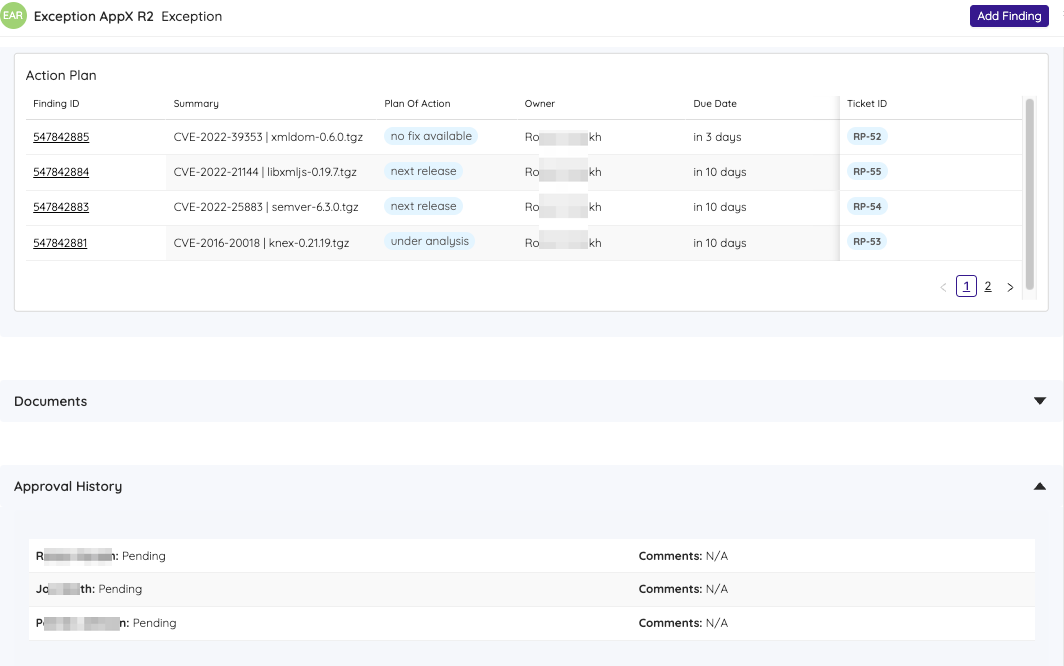
Risk Register automates the pain out of handling Finding exceptions
With the introduction of the Risk Register, ArmorCode delivers the governance and guardrails that mature organizations require for exception handling. For the set of Findings that can’t be closed in a timely manner (or at all), teams can create an exception with justification and explanation, and put them through a mature approval process across multiple people, all within the ArmorCode ASPM Platform. This greatly reduces manual effort, improves security posture and auditability, and helps organizations manage the full lifecycle of their Findings across all their scanners within ArmorCode.
Schedule a personalized demo to learn more about ArmorCode and see the Risk Register in action.

